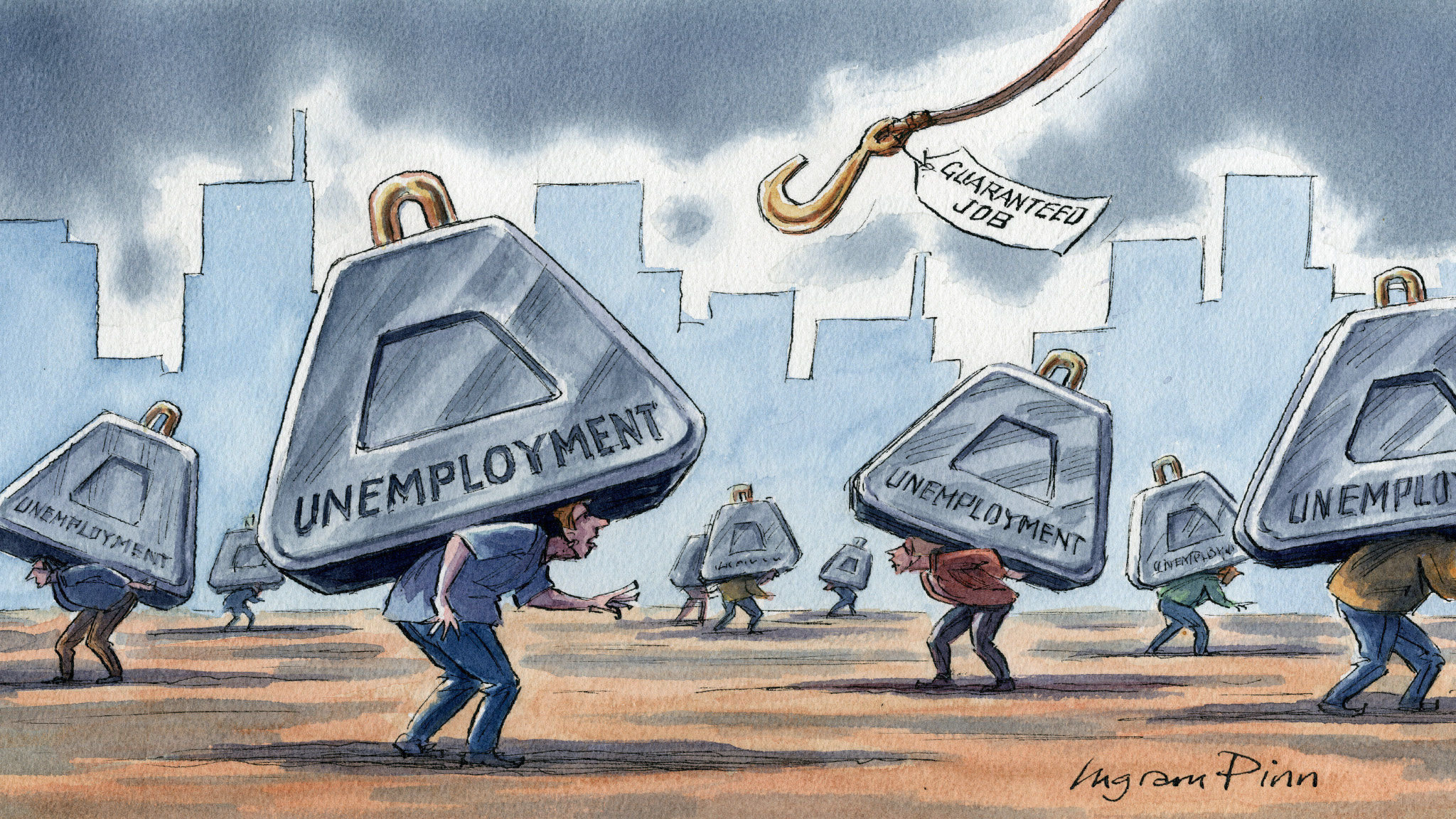Top Stories
Nigeria’s unemployment rate estimated at 40.6% – KPMG report
Nigeria’s unemployment rate estimated at 40.6% – KPMG report

Nigeria’s unemployment rate has been estimated to top 40.6% in 2023 from 37.7% in the previous year and is expected to climb further to 40.6% in 2023. This is according to a recently released report by global professional service firm, KPMG titled: Global Economic Outlook.
The report noted that unemployment in Nigeria is expected to increase on the back of limited investment by the private sector, low industrialization, as well as slower than required economic growth.
The Nigerian section of the report, which was titled: “Challenging macroeconomic fundamentals in a transition period” was prepared by former Statistician-General of the NBS, now Chief Economist, KPMG in Nigeria, Dr. Oyeyemi Kale and Oluwole Adelokun, Associate Director, Strategy and Economics, KPMG in Nigeria.
Slow economic growth
Nigeria’s real GDP grew by 3.52% year over year in Q4 2022 compared to 2.25% printed in the previous quarter, with an annual growth rate of 3.1% for the year against 3.4% in 2021.
- Growth in 2022 was driven by the non-oil sector, as continuous recovery in household consumption boosted spending, particularly in the finance and insurance services, telecommunications, and transportation and storage services.
- While the non-oil sector grew by 4.84%, the oil sector contracted by 19.22%, largely attributed to worsening oil theft, pipeline vandalization, underinvestment, and other operational challenges inhibiting oil production.
- The report estimates that Nigeria’s GDP will continue to grow at a relatively slow pace of 3% in 2023 due to the slowdown in economic activity that typically characterizes periods of political transition in Nigeria.
Nigeria’s unemployment has been trending upward over the years, reaching a record high of 33.3% in Q4 2020 according to the last NBS labor report, with over 23.1 million Nigerians out of jobs. This statistic is expected to worsen in recent times considering the ripple effect from the covid-19 pandemic, economic downturn, high inflation, and massive layoffs in the tech space amongst others.
What the report said
An excerpt of the report reads, “Unemployment is expected to continue to be a major challenge in 2023 due to the limited investment by the private sector, low industrialization and slower than required economic growth and consequently the inability of the economy to absorb the 4-5 million new entrants into the Nigerian job market every year.”
- “Although lagged, the National Bureau of Statistics recorded an increase in the national unemployment rate from 23.1% in 2018 to 33.3% in 2020. We estimate that this rate has increased to 37.7% in 2022 and will rise further to 40.6% in 2023.”
- The report also highlighted the impact of the high inflation environment on the economy, with projections of at least 20% in 2023.
- “Headline annual inflation maintained its upward trend throughout 2022, reaching its highest levels in almost two decades and closing the year at 21.34%, with food inflation and core inflation growing by 23.75% and 18.49%, respectively.”
- “To combat rising inflation, the Nigerian Central Bank (CBN) raised the Monetary Policy Rate (MPR) by a cumulative 500 basis points in 2022, to 17.5%, and increased the Cash Reserve Ratio (CRR) from 27.5% to 32.5%.”
“However, despite these aggressive rate hikes, inflation has remained stubbornly high and is predicted to remain above 20% in 2023 due to the persistence of the structural and policy issues,” the report reads.
Breakdown of the last official report
In Q4 2022, Nigeria’s unemployment rate rose to 33.3% from 27.1% recorded in Q2 2020, representing the highest on record as of the period. The total labor force was estimated at 69.67 million, with only 30.57 million fully employed citizens.
- Unemployed citizens were estimated at 15.9 million, and which total number of unemployed citizens was 23.19 million as of Q4 2020.
- The NBS is yet to release any labor statistics since Q4 2020, however, the unemployment report is expected to be released in Q2 2023. The NBS has explained that the delay in the release of the report was due to the process involved in enhancing the methodology and implementation of the Nigeria labor force survey.
- “We have started data collection using the new approach since the fourth quarter of the previous year, and we anticipate releasing national results quarterly and disaggregated state-level results by the end of the year,” the NBS tweeted.
- According to the statistical agency, the result from the Q1 2023 Nigerian labor force survey employing the revised technique and approach is scheduled to be released in Q2.


 News21 hours ago
News21 hours agoNIGERIAN BREWERIES PARTNERS OZA CARNIVAL

 Top Stories8 hours ago
Top Stories8 hours agoTinubu’s Aide Condemns Plan To Reinstall ‘Jesus Is Not God’ Banner In Lekki Mosque

 News9 hours ago
News9 hours agoPetrol To Sell ₦935/Litre From Today – IPMAN

 Top Stories3 hours ago
Top Stories3 hours agoBreaking: FIRS Announces Fresh Recruitment, See Eligibility Criteria, Application Deadline

 Top Stories9 hours ago
Top Stories9 hours ago2025 Budget Cannot Address Nigeria’s Economic Challenges – Atiku

 News8 hours ago
News8 hours agoPresident Tinubu’s reforms not responsible for food stampedes – FG

 Entertainment8 hours ago
Entertainment8 hours agoI will be more influential in Nigeria than UK – Tobi Adegboyega

 Top Stories6 hours ago
Top Stories6 hours agoPrimate Ayodele’s Prophecies For 2025







